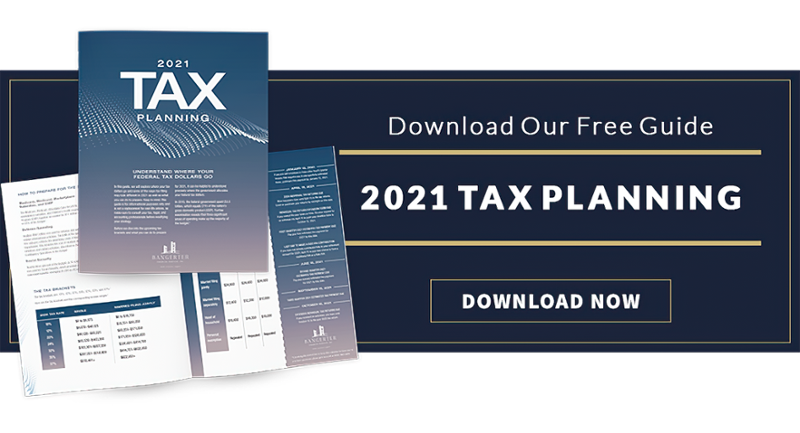The 2021 tax season has arrived. If you haven’t already started preparing, now is the time to begin. Before you do, you’ll want to take a look at several of the changes that affect 2020 tax filings.
Perhaps the most relevant change was the recent announcement on March 17th, 2021 by the Treasury Department that the federal tax filing due date for individuals filing 2020 returns was extended from April 15th, 2021 to May 17th, 2021, providing additional help to taxpayers dealing with the disruption of the pandemic. You can take advantage of that extra time here by learning about a few of the most important things you need to know.
2020 Tax Changes
There are several small changes that may affect your 2020 tax filing. This includes updates to tax brackets and standard deductions.
Tax Bracket Updates
For 2020, the brackets have been changed to 10%, 12%, 22%, 24%, 32%, 35%, and 37%. This change means that filers may find themselves in a lower bracket. For example, a single filer with a taxable income of $83,000 would have been in the 24% bracket in 2018. In 2020, this same $83,000 falls in the 22% bracket.
These rates are scheduled to remain the same through 2025 unless Congress makes them permanent.
New Standard Deductions
The standard deductions for each filing status (single, married filing jointly, married filing separately, and head of household) all increased for the 2020 tax year by $200 to $400. This may make it more attractive to simply take the standard deduction rather than itemizing your deductions.
In the past, taxpayers had itemized deductions like their local taxes, large charitable donations, and mortgage interest. For the 2020 tax year, these same individuals may have a harder time finding enough itemized deductions to exceed the standard deduction.
Additional changes reduced or limited the itemized deductions taxpayers are allowed to take. This includes the elimination of deductions for job-related expenses, a new limit on the deduction for cash charity contributions, and the elimination of the moving expense deduction for anyone other than active-duty U.S. military.
Gathering Your Documents
No one enjoys rushing to find the documents they need at the last minute. Save yourself the stress by starting to gather the information you need as early as possible. This includes paychecks, mortgage payment records, relevant receipts, medical bills, W2s, 1099 forms, and more.
Choose a safe place to store your paperwork until it’s time to file. If you have previous tax returns or other important information on your computer, take a minute now to back it up onto a thumb drive or the cloud. This will help ensure you don’t end up losing it if your computer is hacked or stolen.
As you prepare, keep the extended May 17th deadline in mind. Make sure you give yourself enough time to collect all the documents and file your taxes, so you won’t have to deal with last-minute stress.
Tax Filing Deadlines
It's important to file tax forms and make any required payments on time. Individual tax returns for 2020 are due by May 17th, 2021. This means that you must email or postmark your return by midnight on that date. If you can't file your taxes on time, you must still file a tax extension form by midnight on May 17th. Once this form is filed, you'll have until October 15th to file your tax return.
Note that the IRS extension applies only to the individual federal tax filing deadline. States may have different requirements. So it is important to check with your state tax agency and know its policy.
You can also make a 2020 contribution to your IRA or Roth IRA until May 17th, 2021. Technically, you can still contribute until May 17th even if you already filed your taxes. However, if you do, you'll have to file an amended tax return. The May 17th filing extension does not apply to estimated quarterly tax payments. So, if you pay quarterly estimated taxes, you must make your payments on or before April 15th, June 15th, September 15th, and October 15th, 2021.
Prepare for Your 2020 Tax Filing
Planning to prepare your taxes early will help ensure you’re able to take advantage of all relevant opportunities. To learn more about the topics covered above and receive additional tax tips, download our 2021 Tax Planning Whitepaper.
Before making changes to your tax strategy, it’s always important to consult with your tax, legal, and accounting professionals. If you need financial help, the professionals at Bangerter Financial Services can assist. Give us a call at 916-965-1879 to schedule a consultation.
This is for informational purposes only, does not constitute as individual investment advice, and should not be relied upon as tax or legal advice. Please consult the appropriate professional regarding your individual circumstance. Investment advisory services offered through Bangerter Financial Services, Inc. A state Registered Investment Advisor. Registered Representative and securities offered through Concorde Investment Services, Inc. (CIS), member FINRA/SIPC. Bangerter Financial Services, Inc. is independent of CIS.




.png?width=273&height=103&name=Brokercheck%20(1).png)

Comments